- From Faith Current: “The Sacred Ordinary: St. Peter’s Church Hall” - May 1, 2023
- A brief (?) hiatus - April 22, 2023
- Something Happened - March 6, 2023
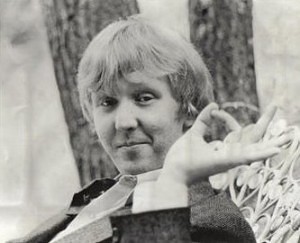
Everything’s OK with Harry N.
Trolling the internet in the wake of another viewing of “Who In The World Is Harry Nilsson?” I ran across this interview with the legendary songwriter Jimmy Webb on Harry Nilsson. Nilsson fans are well-nigh enjoined to read it. Here’s a nice meaty quote for you:
[Harry] was proud of that [the famous screaming contest with John Lennon]. There was a lot of testosterone floating through the air, and John, in a way… Well, there are a lot of Lennon fans out there, God forbid I should say anything about John, but he kind of brought out the worst in Harry. I think they would have probably both been better off if they had been somewhere else, doing something else. But I understood. I understood. I had been there, I had done it, but I had reached the point where–even though I never stopped loving him like a brother, and I think Ringo’s right when he says, “Harry was my best friend,” I think they were best friends…
An interesting thought: if Yoko hadn’t happened, do you think John and Ringo would’ve done what Harry and Ringo did, and John and Harry did? That is, cut a swath through the 70s until one of them crashed? I’ll never tire of thinking about how Harry Nilsson seems to fit with each Beatle…what is it, I wonder? The booze, the fundamental loneliness, the musical ability—or all three?
Here’s more Webb on Nilsson, this time from Rolling Stone:
It’s with sadness that Webb remembers his final encounter with Nilsson. They had dinner with fellow songwriter Stephen Bishop and their wives and girlfriends at Beverly Hills restaurant The Ivy. Although Nilsson then had a heart condition, he ate fried chicken off someone else’s plate. When the meal was over, he suggested that he and Webb go for a drive back to their hotel in Santa Monica alone.
“We pulled up in a real quiet spot in front of the hotel and he pulled out a couple of cassettes and said, ‘I want you to listen to some stuff.’ And I say, ‘OK, great.’ And he played maybe 20 songs and took the cassette out and shoved another one in, probably played another 20 songs. We were out there for hours. He didn’t say anything. It was just song after song after song — sweet, brilliant, witty off-the-wall Harry — different and great. Afterward, he said, ‘Well, What do you think?’ And I said, ‘I love it.’ And he said, ‘I hope so, because that’s my life work. Thanks for listening.’ That was the last thing he said to me. I wish there had been somehow a happier parting because I felt there was a certain air of sadness about the whole thing.”
As a thanks for reading, here’s Nilsson’s demo for his iconic cover, “Without You.” Even yummier, I think.

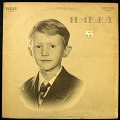
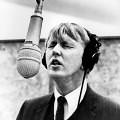
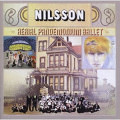
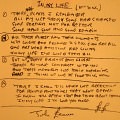
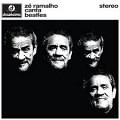
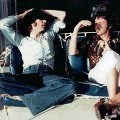
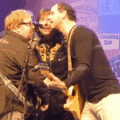
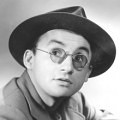
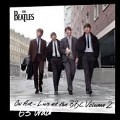
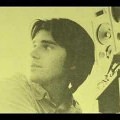
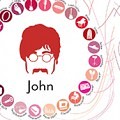
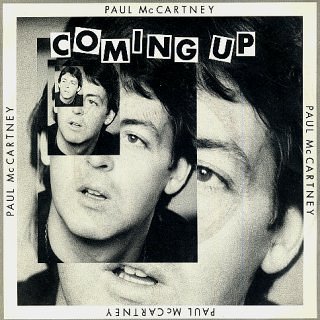
Interesting: Jimmy reluctantly reveals that John brought out the worst in Harry. This sort of contradicts the official J&Y story that good John went out to LA, and was corrupted by bad Harry.
So it was more of a two-way street, with each daring and double-daring the other to be wild, macho, outrageous.
But Harry had “lost weekends” with other musicians over the years, not just John. But as far as we know, John’s big alcohol binge happened only with Harry.
But of course, @Sam, we know that it didn’t only happen with Harry–John abused substances consistently throughout his life, and if one believes that drug use changes behavior (duh, but biographers and such positively run from this fact), it’s a fool’s errand to try to understand what John did and said without looking at the chemicals that were likely in his bloodstream at that time, his age (or, rather, his physical health and ability to process the chemicals), any mixing that might’ve been going on, and whether or not there had been any cumulative effects by that time. The “Lost Weekend” is a convenient myth, convenient for both John and the fans, a nice way to seal off his self-destructive side. It’s a way to emphasize was what great about John–his forthrightness, his seeming ability to connect with people across the gulf of fame–and ignore what was not great about him. A lifetime of addiction explains John Lennon much better than a single period of Yoko-related depression, transformed by coming back home and having a kid (that, too, is classic addict thinking).
Hamburg was certainly a “big alcohol binge” as well as a festival of Preludin; these drugs were determinative to that period. It’s highly unlikely that they ended when the Fabs came back to Liverpool; it’s highly likely that John was still using pills and drink in the mania period (their workload alone seems to demand it). That’s a guess, but as the culture got more open about drug use, the conventional sources have recorded the rest: 1965-66 was spent in a haze of pot smoke; 1966-67 was drenched in acid and god-knows-what-else; and 1968-70 was marked by heroin, including a period during the summer of ’68 where he and Yoko were living in actual junkie squalor in Montague Square. There’s no judgment in this. To me, it’s not really fair to love Beatle music and despise the drug use that had to be so much a part of the whole story. How much of their insane productivity and growth came from amphetamine’s gift of work? How much of their ability to handle massive fame (and seem rather unimpressed by it) came from pot? And so forth.
But when you’re talking about the individuals and their behavior, it’s clear that as the drugs they took became harder and their bodies aged, the effects of drug use became more and more obvious, and more and more malign on their creativity, their personal relationships, and so forth. This, too, is standard addiction stuff. The relationship of John’s heroin use on the breakup is clear. Could it be that the wide swaths of mediocrity in the Beatles solo catalogs have something to do with aging bodies, cumulative effects, and the 70s vogue for coke rather than pot? Of course–but it’s revealing that I’ve never once heard this opinion expressed in a concrete way. Harry Nilsson was an equally enthusiastic taker of drugs, who demonstrated a similar pattern of quality–stardom–gonzo drug use–mediocrity.
In addition to the shift from pot to coke–the Smothers Brothers incident screams “cocaine”–I think what really distinguished the “Lost Weekend” period in LA (as opposed to NY, which seems to have been fairly calm) was the openness of the craziness. The drug use of people like Lennon and Nilsson can be assumed to be constant; what changed is the culture around it, how public it became. The “Lost Weekend” was a period of hard partying, but it was also a period where John didn’t have somebody actively managing the press and manipulating his public image.
The Nilsson doc called Harry and John’s bond “a friendship made in Hell.” I think drugs were the sole reason for that, and cocaine and booze in particular.